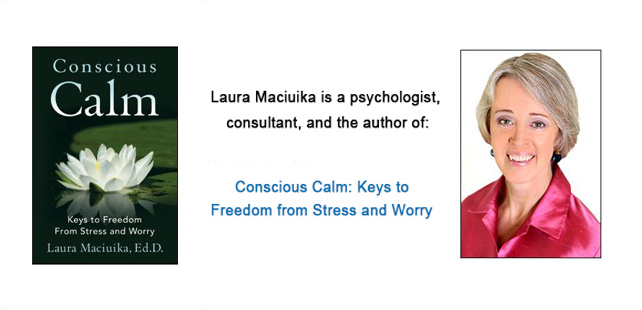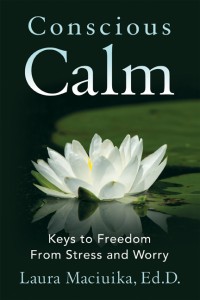 How do work stress and anxiety connect? What is happening when “anticipatory anxiety” takes over, when we are nervous about something that is not even happening yet? And how can we begin to get free from this destructive, upsetting pattern that can keep us feeling trapped?
How do work stress and anxiety connect? What is happening when “anticipatory anxiety” takes over, when we are nervous about something that is not even happening yet? And how can we begin to get free from this destructive, upsetting pattern that can keep us feeling trapped?
Here’s one example of this common problem and how to begin to solve it. A client I worked with had a new investment business with three partners. He had good relationships with his colleagues, and got along well with the clients they were serving. But this young man, I’ll call him “Jay,” was confused and upset. While he was good at his job and knew his stuff, he kept getting stressed and anxious whenever he had to make phone calls or sit down in meetings with potential new clients. Jay found himself getting sweaty palms, his voice would crack and quiver, and all this would make him even more nervous and stressed out.
While Jay was perfectly competent and tried to tell himself this, in those anxious moments it didn’t matter. Jay became stressed and nervous before every call and meeting. As the stress and anxiety kept getting worse, he found himself avoiding phone calls to newer clients, and trying to postpone or even get out of doing meetings with prospects. His business partners were beginning to notice, and the fear of losing his job brought Jay in for a consult about how to change this stress and anxiety pattern and get back in control.
Jay was confused for good reason. It didn’t make sense to him. How was it possible to be good at what he did and know he was competent, and yet get nervous and stressed enough for it to affect his self esteem and even threaten his job?
This common confusion about why we are getting so stressed or nervous is a sign we are being run by our thoughts and emotions. Since few of us are taught much about how emotions work in the body, or how thoughts and emotions are connected, or what happens in our bio-chemistry when we think and feel certain ways, we are often left at the mercy of whatever happens to come up in our bodies and minds. We can then get into internal patterns that run us. This was happening to Jay – despite his best efforts to calm down, to speak slowly, and to tell himself that he knew what he was doing and it would be fine, he kept ending up so nervous and stressed out that it impacted his work performance and sense of himself.
One place to begin changing a pattern like this is to notice: what exactly are we doing inside? What are those thoughts, what is that self-talk, that may be going just beneath conscious awareness, and therefore running the show without our full knowledge? This often takes slowing down the internal action, and paying closer attention to what happens before we are so stressed out or anxious. Our self talk is powerful, and can either spiral the anxiety up higher, or back down to calm.
When Jay began to notice what he was actually saying to himself long before he was anxiously telling himself he’d be fine, he noticed two things. First, he became aware that he was telling himself things about the future that had not even happened yet. “What if I don’t know the answer?” or “What if they challenge these numbers?” and “What if I don’t sign this account?” were typical thoughts Jay had running. He also noticed he was anticipating getting stressed out and nervous again the next time, and then trying not to think about it. In the psychology lingo, this is “anticipatory anxiety,” when we think about how we might get stressed or anxious about a future event and get anxious in advance. Since our bodies don’t make a big distinction between an actual event, and visualizing the event and running the scenario in our minds, the same bio-chemical changes happen as if we were actually there. For Jay this meant feeling nervous, getting sweaty palms, and feeling tense and stressed long before he walked into the meeting or made the next phone call.
Noticing what we are doing in our self talk and attention can be a powerful start to breaking patterns of stress and anticipatory anxiety. You then can make another choice, such as staying focused on the present, instead of allowing your attention to jump into a future that has not yet happened. That increased awareness was a start for Jay to change his pattern of anxiety and nervousness. He began to learn how to choose and change his self talk, and learned how to use his breath as a tool for staying present and calm. Shifting attention to the present, using the breath as a calming anchor, and noticing and choosing self talk, can unlock patterns of anticipatory anxiety, and help you consciously choose calm instead.
Dr. Laura Maciuika is a psychologist and the author of Conscious Calm:Keys to Freedom from Stress and Worry, available at Amazon and other online stores, or through ConsciousCalm.com




